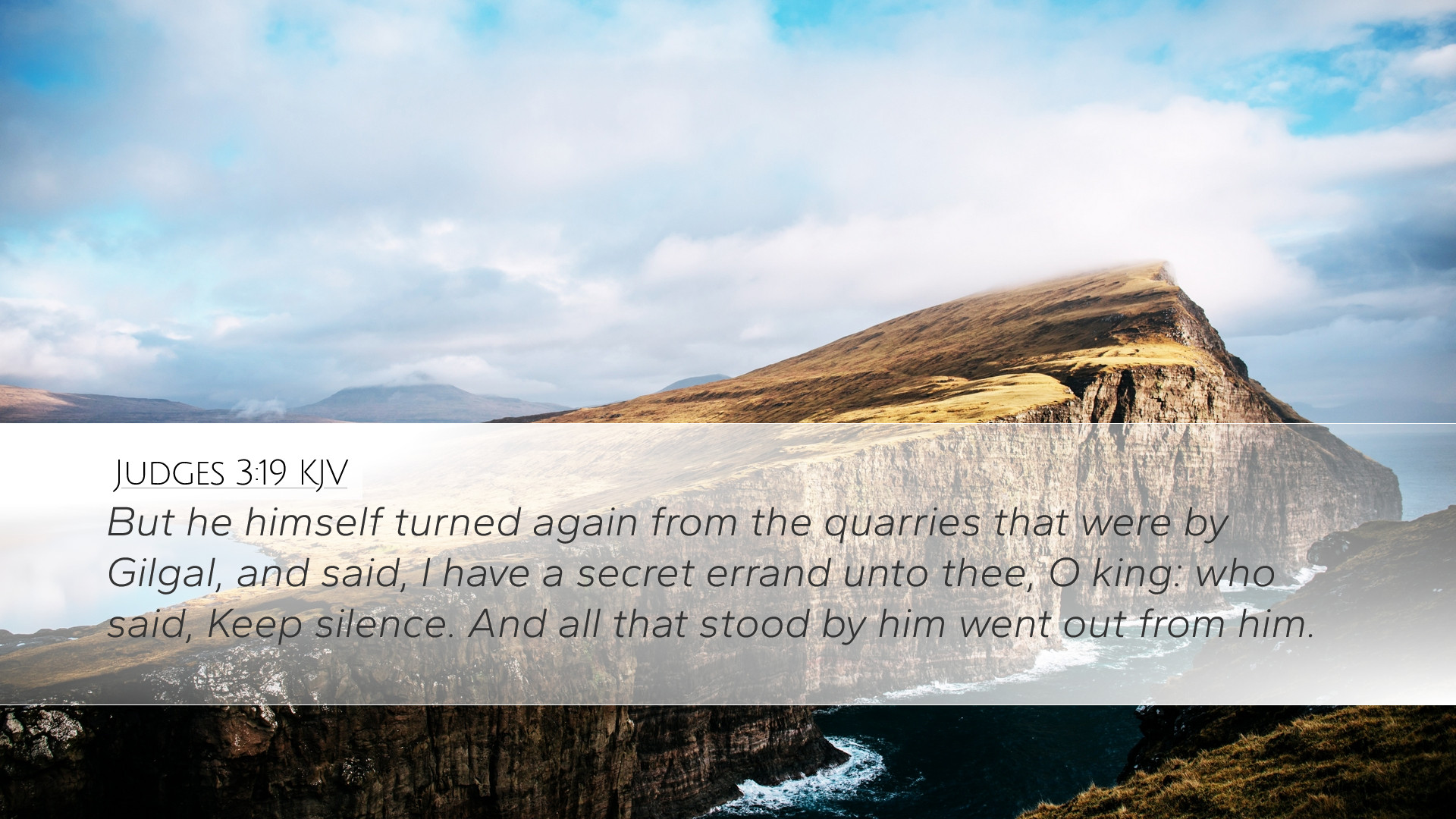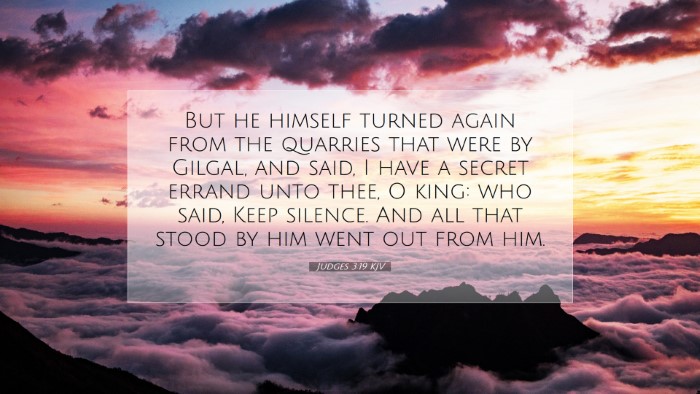Commentary on Judges 3:19
Judges 3:19 states: "But he himself turned again from the quarries that were by Gilgal, and said, 'I have a secret errand unto thee, O king.' And he said, 'Keep silence.' And all that stood by him went out from him.'
This verse refers to Ehud's secretive return to King Eglon after delivering tribute from the Israelites. The subtlety of his actions offers rich layers of insight for believers, scholars, and ministers alike.
Contextual Background
The Book of Judges addresses a turbulent period in Israeli history when the Israelites struggled with their identity and faithfulness to Yahweh. They oscillated between faithfulness and rebellion, leading to cycles of oppression and deliverance. Understanding the environment surrounding Judges 3 sheds light on Ehud's character and actions.
1. Historical Context
- The Israelites were under subjugation by Moabite King Eglon due to their disobedience.
- Ehud, a left-handed man from the tribe of Benjamin, is chosen by God to deliver Israel, highlighting God's use of unconventional means and individuals.
- This period foreshadows the necessity of a savior, paralleling the ultimate deliverance found in Christ.
2. Literary Context
Judges employs a cyclical narrative structure that showcases the Israelites' sin, servitude, supplication, and salvation. Judges 3 specifically illustrates the second cycle with Ehud's rise as a deliverer. Attention to literary elements enhances understanding of the text's purpose.
Theological Insights
1. The Secrecy of God's Plans
Ehud's clandestine approach reflects the divine wisdom in executing God's will. Commentators such as Matthew Henry highlight that God's chosen methods often entail secrecy and unexpected turns. This teaches the church that deliverance may come in forms we least expect.
2. Courage in Obedience
Ehud's bravery stands out as he undertakes a mission that poses significant personal risk. Albert Barnes notes that true courage is found not in the absence of fear but in the willingness to obey God's command despite it. In today's context, pastors can encourage congregants to embrace their divine assignments, regardless of societal pressures.
Character Analysis: Ehud
The character of Ehud is multi-faceted, embodying attributes valuable for contemporary believers:
- Strategic Thinker: His ability to devise a plan speaks to the importance of wisdom in leadership.
- Brave Yet Cunning: His actions are calculated, indicating that tactfulness can accompany courage.
- Instrument of Deliverance: Ehud serves as a type of Christ, showing that God often uses flawed vessels to accomplish His purposes.
Implications for Modern Believers
1. Divine Appointments
Ehud's appointment to deliver Israel speaks to God's sovereignty. Today's believers should recognize their own divine appointments, understanding that God has a purpose and mission for each individual.
2. Recognizing the 'Secret' Missions
In life and ministry, believers often encounter situations that require discretion and strategy. Adam Clarke notes that not all actions that lead to God's will are to be done publicly. The call for believers is to be sensitive to God’s leadership in our decision-making processes.
3. Trusting God in the Process
The tension of the narrative illustrates that while obedience may not always lead us to immediate victory, it is part of God's overarching plan. The community of faith is called to trust in the unseen workings of God as they venture out in obedience and faith.
Conclusion
Judges 3:19 serves as a reminder of how God can use the unsuspected and the unconventional to fulfill His plans. The study of this verse within its context encourages deeper understanding among pastors, students, and scholars, as they extract life lessons applicable to their own journeys of faith.
As we reflect upon Ehud's story, may we be encouraged to embrace our calling, secure in the knowledge that God orchestrates our lives for His glory, often through means that we cannot see.


